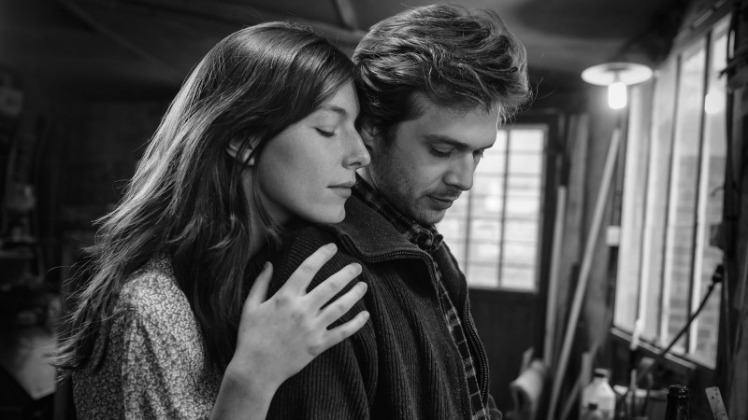Hong and Garrel at the Berlinale

Eric Rohmer’s name often crops up in discussions of the work of Hong Sang-soo and Philippe Garrel, two prolific yet ultimately dissimilar directors with new films in competition at this year’s Berlinale. In Hong’s case, it’s usually his characters’ deceptively casual talkiness that draws comparisons to Rohmer, while many viewers detect echoes of Rohmer’s moral tales in Garrel’s fablelike narratives. Both directors have been criticized as much as they have been praised for ostensibly repeating themselves. And both of their new films take on the careless arrogance of men via their respective protagonists’ encounters with three women each in chapter-like passages. But while Garrel’s The Salt of Tears maps the emotional devastation wrought by the selfish cowardice of a young man, Hong’s The Woman Who Ran subtly celebrates women who have rid their lives of overweening men and struck out on their own.
There is a woman who ran in Hong’s film, a wife and mother who has disappeared, leaving her family anxious and alarmed. She’s mentioned once, never seen, and soon forgotten, but as Daniel Kasman points out in the Notebook, over the course of the feature, it becomes clear that the film’s title could just as well refer to Gam-hee (Kim Min-hee), who has cut her hair short and set out to visit two old friends before later bumping into a third. She tells the recently divorced Young-soon (Seo Young-hwa), the Pilates instructor and occasional dance producer Su-young (Song Seon-mi), and the movie theater operator Woo-jin (Kim Sae-byuk) that she’s traveling alone for the first time, having spent every day with her husband for five years straight. She delivers the same explanation, verbatim, three times: “He says that people in love should always stick together.”
All three of Gam-hee’s visits are intruded upon by unwelcome men. Young-soon has a roommate, Young-ji (Lee Eun-mi), who cares for the stray cats in the neighborhood as if they were her children, and when a man rings the doorbell to complain that the cats are terrifying his wife, what follows is a brilliantly entertaining showcase of passive-aggressive politeness as Young-ji stands her ground. The scene culminates with a zoom in on one of the cats that had the Tuesday morning audience here in Berlin breaking out into applause. At Little White Lies, Sophie Monks Kaufman reports that at the press conference, Hong said that the cat nailed its performance on the very first take.
Su-young has to break off her conversation with Gam-hee to chase off a pesky stalker, and somewhat unusually for Hong, this is the only scene in which voices are raised. At the movie theater, Woo-jin apologizes to Gam-hee for taking her partner, the writer Mr. Jung (Kwon Hae-hyo), all those years ago, but she seems to be feeling just as sorry for herself. He’s always repeating himself, she complains—perhaps a sly wink of self-aware commentary from Hong—so how can he be sincere? When she happens to run into Mr. Jung herself, Gam-hee passes along Woo-jin’s observation as if it were her own.
In Variety, Jessica Kiang makes note of Hong’s “trademark anti-style,” one “that suggests an impatience with formal aesthetic choices about camera placement and shot variety and other such niceties that has become, over time, its own aesthetic. After a couple of monochrome miniatures with 2018’s Hotel by the River and Grass, DP Kim Su-min’s simplified imagery is in color, but only barely.” There are two scenes in black and white, though, as Gam-hee, always the curious observer, watches her friends interact with outsiders via security cameras.



